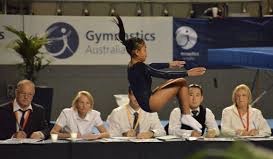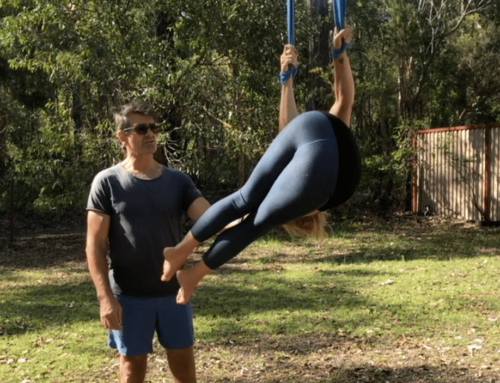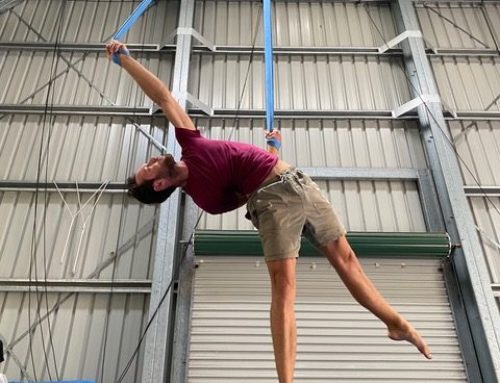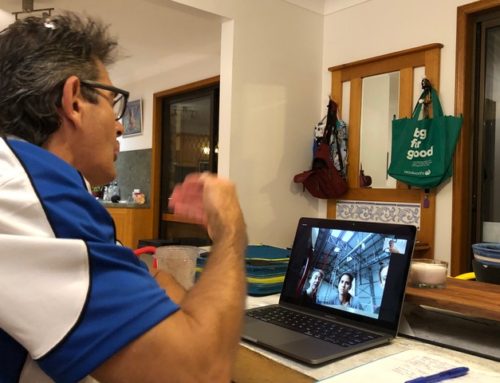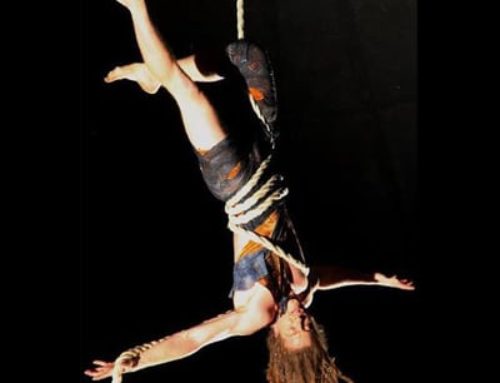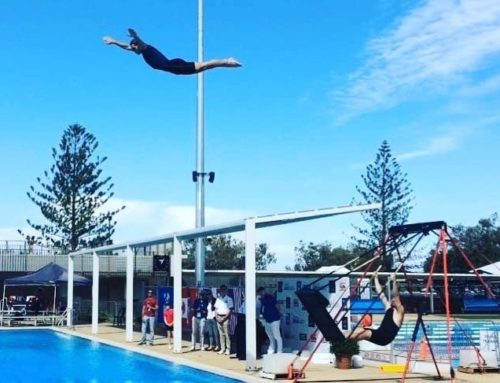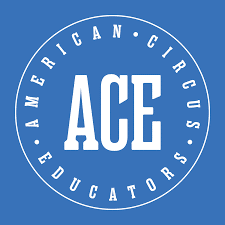I was recently asked for my advice for students in preparing for an audition. I have written this blog to share with everyone because it is valid and probably something that most high-skilled students will eventually experience. Circus schools around the world serve the main purpose of training circus artists at all skill levels. Some schools cater for the community and are geared towards social circus standards, giving their students a chance to have fun, encouraging their students to try different apparatus and maybe perform for their parents at the end of the school year. Some are more serious and put great efforts into creating shows with their students, but do not focus on the individual growth of each student. Others offer a University degree and expect their graduates to enter the circus world as top flight circus performers. I have often seen students leaving one circus school and entering another that could make their dream of becoming a professional performer come true. In a case like this, you might be faced with going through an audition in order to be accepted at one of those high-level circus schools. Another audition that you might face is that of applying for a performing job that has been advertised to the global circus community, and like yourself, there might be 20 or more other hopefuls who want that gig. How can you enter that audition with the confidence you need to get through the cuts and become a successful candidate?
Auditions for high level circus schools can be a nerve-wracking experience, especially for students who have a particular circus school as their goal. It is very intimidating to arrive and find another 200 hopefuls, just like yourself, trying to get one of the 28 places offered for the following year of education. When you see the quality of your competitors, you might start to be filled with self-doubt about your own skills, and your determination quickly evaporates into an emotional nervous wreck. It does not need to be like this, if you follow this advice. Do some homework and research the different circus schools offering the outcome of your choice. Sometimes the circus school closest to you might not offer you the specialised skill that you want, or they do not have a good record of graduates getting professional jobs after graduating. You might consider the performance style that you like and search for a circus school that offers a more contemporary style of presentation or a more traditional style. You might be a “generalist” and have mediocre skills at a big range of different circus disciplines, but not great at just one of them. Or you might consider becoming exceptionally skilled at only one apparatus. Thanks to the internet, it is very easy to find a circus school that will offer you exactly what you want, even if they are in another country.
Students in Europe grow up learning different languages in school, so choosing a circus school in Europe is easy for them. Growing up in a country that speaks only one language makes it hard for students to learn a different language, so choosing to go to school in France when you come from Australia might become a challenge because you also have to learn to speak and understand the French language. If you have the financial support, going to a different country to study and train circus might be a great adventure and worthy of consideration. Make a list of the different circus schools that appeal to you and then research their audition requirements. What skills are required and what strength levels are they expecting of their new intakes. Once you have some comparisons, you have a better idea of what you need to do to prepare for the audition process. Most circus schools will require new students to be reasonably well-skilled in ground acrobatics (tumbling). I’m sure not all circus students are ex-gymnasts, but it might be in your interest to join a gym club, even if it is to become better at your ground acrobatic skills. Most schools will have a list of pre-requisite requirements in strength, acrobatic abilities, flexibility, etc. You usually need to be able to do 10 chin-ups easily or 10 straight leg raises to your hands while hanging on a trapeze bar. They also look for a reasonable amount of flexibility in back shoulders and legs.
Here is a list of the physical preparation you need once you have made a choice to become a student at a circus school with the intention to become a circus performer after graduating. For flexibility, you will need at least a forwards splits, flat, both legs straight an in line. Close to flat on the middle split. Bridge or back arch going down and returning to stand comfortably. I have already mentioned some strength requirements, but add to those 30-40 push-ups, handstand against a wall for 1 minute. Strength poses like back lever, front lever and one arm flags are great extras, but probably not necessary. Acrobatic requirements will include balancing handstand from a kick up, but better if you can press up with straight arms. Ground acrobatics should include running forwards dive rolls, walk-over, handspring, somersault. Standing back handspring, backwards roll shoot to handstand (streuli), back walk-over, if possible, a standing back tuck somersault. Cartwheels on both sides, round off back handspring and back tuck somersault. If you can do a back layout or full twisting layout after a back handspring, even better. A nice extra will to be the side somersault, Arabian somersault, double back or double twisting layout, but probably not necessary.
Before you get a chance to show them your act or a routine on your preferred apparatus, you will go through dance. You will be taught a short dance routine which you will do with a group of other students. You will not have a lot of time to remember the sequence, so my advice is to start doing some dance lessons with a variety of dance styles, mostly to get used to counting music beats and remembering short dance routines. Some circus schools also require you to do some acting and singing. By now you must be thinking, why all this extra stuff for a circus performer? It might not be great for you personally, but some circus schools put a lot of value in expressive movement which you learn through dance. Acting is most for character work like clowning and singing is an added bonus for multi-talented students.
When you make the decision that you want to become a professional circus performer, you might also have dreams of performing for a well-known circus company like Cirque du Soleil. You might also think that since the Ècole National de Cirque in Montreal is over the road from the Cirque du Soleil IHQ, it is natural that they get most of their performers from the graduate class of the circus school. This is not the case, but ENC has the reputation of guaranteeing professional contracts to all of their graduates. Cirque du Soleil generally like their performers to have some professional experience before hiring them, but they will be interested in students who have unusual specialities who may be lucky to be available at the time Cirque is looking for it. With the strength and general acrobatic abilities that you have learned, your mental preparation is the final, and most important element of your audition preparation. If you are prone to becoming very nervous before a show, ask yourself why. Is it because you are going to perform skills that you are not confident doing well all the time? An audition is much more intense than an audience who want to be entertained. You are presenting yourself in front of judges who are going to make a decision that might affect the rest of your life. Certainly, you are going to be nervous and afraid of failure, so here is my advice for you on the day of the audition.
Get to bed early so that you are well rested for you audition. Have a good breakfast and do something to distract you from the audition. It is silly to get worked up and you are not even at the venue yet. Make friends with the other students who are also doing the audition and remember, they too are just as nervous and stressed as you might be. Support them when it is their turn so that they can do their best. Before it is your turn, take some time to close your eyes so that you are not distracted by surrounding activities and visualize whatever you are about to do. Like your most difficult acrobatic sequence, or the dance routine you had to learn the previous night, or your act routine that you have chosen to perform that day. When it is your turn, take some deep breaths and remember that you have trained hard and that you can do all the skills well. Accept that you might make a mistake, but do not allow that to lower your self-confidence. Do not become distracted by anything other than the judges and the skill that you are about to perform. Finally smile. Yes, you heard me, smile. This not only helps you to feel less stressed, but it will also give you a sense of enjoyment. If you can show your judges that you are relaxed enough to smile and make eye contact with them, they know that you will also have the ability to be a good performer one day. And isn’t that the whole purpose of this process? Be yourself because no-one can do that better than you can, and show the judges what is different and great about you. If you have 28 students who can all do great tumbling, flexibility and strength, what makes you different from them is your character and personality. Getting through an audition might not be regarded as “fun”, but being yourself and finding the enjoyment during the process will make you believe in yourself and give you a sense of achievement that you were able to do your best, no matter the outcome. No stress with your audition, you’ve got this!

